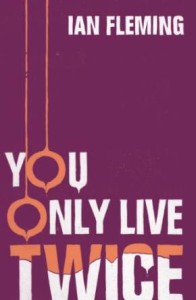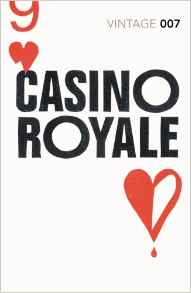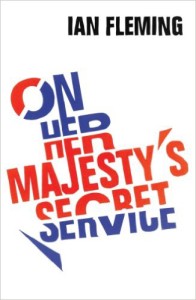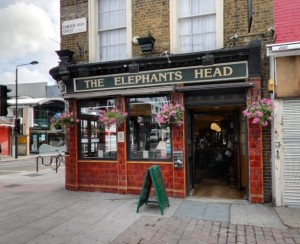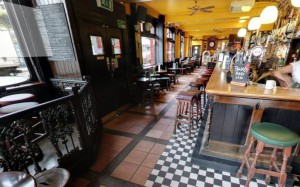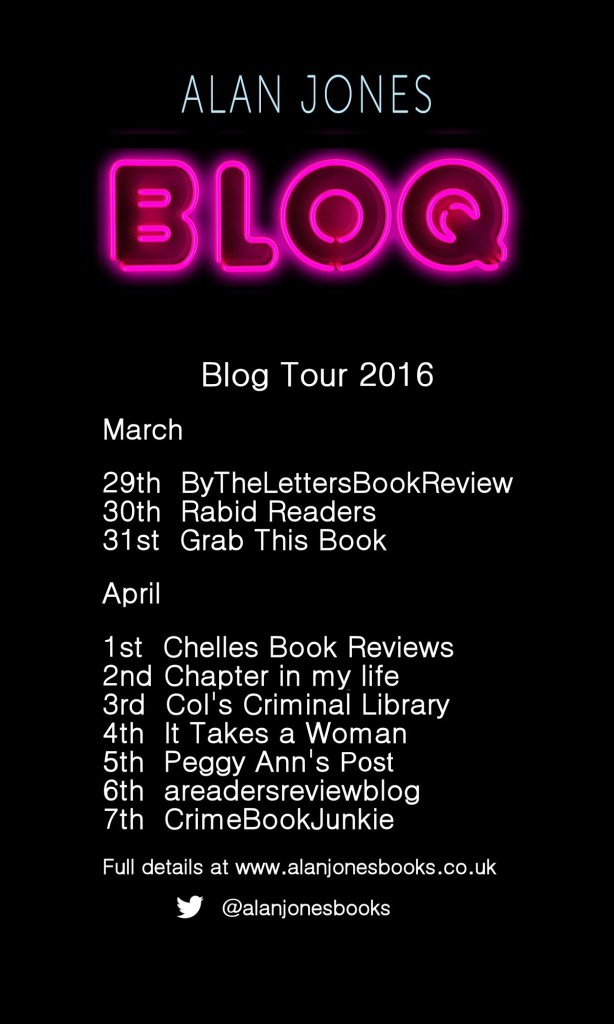In Conversation – Alan Jones and Brian Stewart: Self-Publishing
I am delighted to be able to be able to welcome two new guests to Grab This Book. Alan Jones and Brian Stewart are both self-published authors who have written books that I have loved. Brian’s debut Digital Circumstances was included in my top reads of 2014. Alan Jones has guested here in the past, I reviewed his novels Blue Wicked and Bloq and each received a 5/5 score.
Brian, can I start by asking you for a quick introduction and give you the chance for a shameless plug for your books?
Brian – I’m Brian Stewart. I was brought up in Grangemouth, worked in Edinburgh as a teacher for a couple of years, and moved to Nairn and I’ve been here for over forty years now.
Digital Circumstances is a classic rags-to-riches story, though I didn’t know that when I wrote it. The book follows the life of Martin McGregor and also tracks technology development from the late 80s till the present day. I was really pleased with some great reviews! Digital Investigations is more of a straight crime thriller with a technological dimension and a cybercrime theme running alongside it. It involves credit-card skimming and sex trafficking, both very relevant issues.
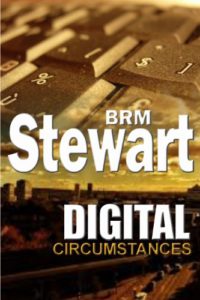 Throughout my books I try to be very accurate about the technology: there’s no facile guessing of passwords, no simple ‘hacking into’ computers. As my main character keeps telling the detective, ‘it’s not like the movies’. Enough from me. Alan, I know you are a vet – what else?
Throughout my books I try to be very accurate about the technology: there’s no facile guessing of passwords, no simple ‘hacking into’ computers. As my main character keeps telling the detective, ‘it’s not like the movies’. Enough from me. Alan, I know you are a vet – what else?
Alan – Thanks for the intro. Our self-publishing routes have been sort of similar – I tried to get my first book traditionally published, and I think I got rejections from most of the agents and publishers in the Writers and Artists yearbook. An agent with quite a large agency said he gave my book serious consideration but declined it in the end. He advised me to put It on the kindle store, and I’ve stayed with the self publishing route since, not really wanting to put myself through that process again.
My first book, The Cabinetmaker, took me 10 years to write on and off, and was a gritty crime story. A Cabinetmaker’s only son is brutally murdered, and the gang of thugs who killed him walk free after a bungled prosecution.
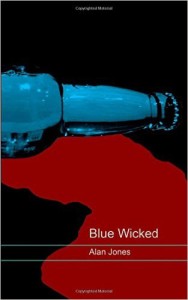 I wrote and published my second book, Blue Wicked in just over a year, and it was even more gritty, and much shorter and punchier. The tortured corpses of young alcoholics and drug addicts are turning up in Glasgow and only unlikely investigator Eddie Henderson seems to know why.
I wrote and published my second book, Blue Wicked in just over a year, and it was even more gritty, and much shorter and punchier. The tortured corpses of young alcoholics and drug addicts are turning up in Glasgow and only unlikely investigator Eddie Henderson seems to know why.
A combination of my first blog tour, and a Street Cabinetmaking stunt at Bloody Scotland to launch The Cabinetmaker paperback raised my profile as a writer and made it much easier to do a proper launch of my third book shortly after. I had a bigger blog tour and distribution of ARC’s to various Facebook book club members, so that Bloq got off to a flying start, collecting 70 reviews in the first three months.
How have you found the self-publishing experience?
Brian: My first – Digital Circumstances – was a long and complex book, so much so that I found it very hard to summarise it to anyone! ‘Investigations’ is, like yours, shorter and more focused. The self-publication process is, of course, easy. I’ve stuck to Amazon, and set up print on demand through Lulu.com (who also manage to get those onto my Amazon page). As every self-published writer finds, the process is much, much faster than the traditional route. Like many others, I had a six month wait for an agent to go from summary to asking for the full text, then another six months for them to finally say no. If they’d said yes, it would have been at least another year to publication. After my first experience, I decided to stick with self-publication for the ‘Digital’ series.
The hard bit is letting people know about the book. Circumstances didn’t sell much, but it got good reviews: for a long time it was well up there in Scottish (and even British) Crime if you searched by average review, but I suspect people search by best-selling.
I think Digital Investigations is a better, more accessible book, but I’m having to work hard to try to get it out there. Recently Amazon has been emailing me, suggesting I might like them. I hope they’re emailing other people too! I’ve sent copies to newspapers who might be interested, and I’m trying to reach online reviewers and bloggers Now, what are your writing habits, Alan? Regular slots or snatched opportunities?
Alan – I write when I can. At the moment, that’s not at all, as work and life have taken over. When I’m writing hard, I can write anywhere, and often write in the middle of the night if I can’t sleep. I’ve never done any research on writing – I’ve learned as I’ve gone along, taking constructive criticism on board when and where it’s been offered. I don’t think good reviews are enough for a self-published book. I think you need a bit of luck and a whole lot of perseverance, both in writing and in promoting.
Brian – It was only when I did a short OU course on creative writing that I started to learn the craft properly. That included sharing my work, and giving and receiving criticism. But nothing beats writing – and writing and editing and writing more. I look back at short stories I wrote in the past, which I thought were really good at the time, and they’re not great at all! When you’re working on a novel, Alan, do you work out the plot beforehand or do you construct the characters and let them run?
Alan – I usually have a good outline of a plot in my head before I ever start writing, but often I’m not quite sure of the detail of how to get there. That usually comes while I’m writing and so far it has always come together. I come up with the characters when I do the plot outline, but many of them don’t fully develop until the book is well underway.
What about you – do you wing it or are you a planner?
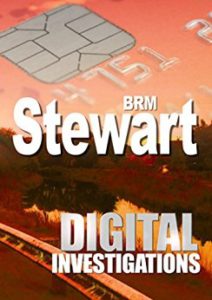 Brian – In everyday life I’m a planner but not when I’m writing, strangely enough. Maybe it’s therapy. When I started ‘Circumstances’, I began with my hero in Orkney, on the run, and I had a good idea that the book would be about his whole back story and the events that had led him to where he was now. But I had no idea how he was going to get out of the situation he was in. I edited and re-wrote, and then did more research into cybercrime and found that the FBI fight cybercrime worldwide. That gave me the idea for the resolution. Writing ‘Investigations’ was different. I had my two main characters from the first book, and I wanted a straight crime and a cybercrime, and I wanted them linked, somehow. Other than that, I had nothing, so I started writing. The book I’m working on now grew out of an idea I had a year or so ago, and again I’m letting the plot grow as I write, then back through it. I’m more experienced now, so I recognise pitfalls more easily – and hopefully avoid some of them. Who do you rely on, apart from yourself?
Brian – In everyday life I’m a planner but not when I’m writing, strangely enough. Maybe it’s therapy. When I started ‘Circumstances’, I began with my hero in Orkney, on the run, and I had a good idea that the book would be about his whole back story and the events that had led him to where he was now. But I had no idea how he was going to get out of the situation he was in. I edited and re-wrote, and then did more research into cybercrime and found that the FBI fight cybercrime worldwide. That gave me the idea for the resolution. Writing ‘Investigations’ was different. I had my two main characters from the first book, and I wanted a straight crime and a cybercrime, and I wanted them linked, somehow. Other than that, I had nothing, so I started writing. The book I’m working on now grew out of an idea I had a year or so ago, and again I’m letting the plot grow as I write, then back through it. I’m more experienced now, so I recognise pitfalls more easily – and hopefully avoid some of them. Who do you rely on, apart from yourself?
Alan – One of the reviews of my first book was by an author/ blogger who gave it 3 stars but it could have been much better if it had been professionally edited. I contacted him for advice and he was incredibly helpful, putting me in touch with a freelance editor. By that time I had more or less finished my second book, and with the income generated from sales of my first book, I had the second one professionally edited. It was an eye opener!
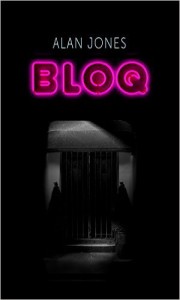 I also have a number of beta readers who are very helpful, especially with Bloq. I had moved from the familiar locations in Glasgow of the first two books, and set this one in London. I managed to find two Londoners to proof read it to make certain I’d got it right, and they both made great suggestions to add ‘London’ flavour to the book.
I also have a number of beta readers who are very helpful, especially with Bloq. I had moved from the familiar locations in Glasgow of the first two books, and set this one in London. I managed to find two Londoners to proof read it to make certain I’d got it right, and they both made great suggestions to add ‘London’ flavour to the book.
Do you rely on help from friends when writing?
Brian – My wife is my first and best critic. I complete a draft, edit, and then leave it for a while before re-editing. When I have a good draft, I let her read it and make comments. I then re-edit. At that stage I send to two beta readers, one of whom was on a writing course with me. I take their comments and re-work, and then my wife has another read through. Finally, in Word, I pick up grammar errors, spelling mistakes, inconsistencies in people’s names. Gordon – I would like to thank Brian and Alan for giving up their time to share their experiences of getting their books to readers. It is clear that for self-published authors reviews are a vital element in their challenge to spread the word about their books. I cannot recommend Alan and Brian’s books highly enough and I would encourage other readers (and especially the bloggers) to seek out their books and leave them a review.
Alan Jones can be found on Twitter as @alanjonesbooks
Brian Stewart is @BRMStewart
Give them a follow, they post some fascinating stuff!
Brian’s Amazon page can be found here: https://www.amazon.co.uk/s/ref=dp_byline_sr_ebooks_1?ie=UTF8&text=BRM+Stewart&search-alias=digital-text&field-author=BRM+Stewart&sort=relevancerank
Alan’s Amazon page is on this link: https://www.amazon.co.uk/Alan-Jones/e/B00ONBKHLE/ref=sr_ntt_srch_lnk_1?qid=1474804171&sr=8-1
